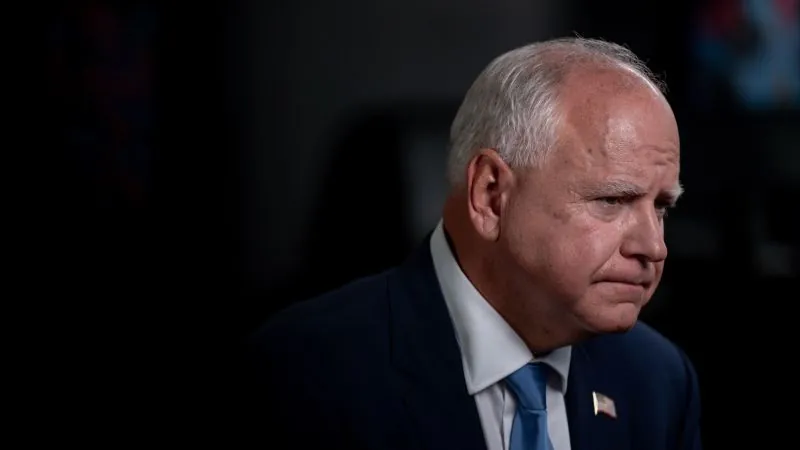
Minnesota Governor Tim Walz Admits to Travel Misrepresentation Amid Controversy Over Tiananmen Square Claims
2024-10-02
Overview of the Controversy
In a surprising turn of events at a recent vice presidential debate, Minnesota Governor Tim Walz acknowledged that he 'misspoke' regarding his presence in Hong Kong during the 1989 Tiananmen Square protests. Walz had previously stated he was in Hong Kong during the peak of the pro-democracy movements that led to a brutal crackdown by the Chinese government. However, newly resurfaced reports from the time challenge his assertions.
Debate Remarks and Reaction
During the debate, Walz reiterated his stance, saying, 'I was in Hong Kong and China during the democracy protests. From that, I learned a lot about governance.' This was in response to probing from CBS News moderators regarding discrepancies found in media narratives and his past comments.
Contradicting Evidence
Reports indicate that on specific dates in May 1989, Walz was actually in Nebraska. A newspaper from that period highlights his involvement with the Nebraska National Guard, casting doubt on his purported involvement in the protests. Despite this evidence, a source close to Walz contended that he aimed to emphasize his commitment to teaching American democratic ideals, insisting he continued his program in China despite the turmoil of Tiananmen.
Past Narratives Under Scrutiny
Previously, Walz had stated in various interviews and congressional hearings that he was preparing to teach in China during the protests. He recounted vivid memories of that period, including the feeling of being cut off from news due to government censorship. Yet, these narratives now face scrutiny as more evidence comes to light, which contradicts his timeline.
Political Ramifications
The controversy has drawn the attention of Republican critics who are eager to challenge Walz's credibility. Jason Miller, a senior advisor for Donald Trump’s campaign, dubbed Walz 'Tiananmen Tim' and expressed his anticipation of utilizing this narrative against him in the upcoming debates. The Republican Party is also ramping up investigations into Walz's potential ties to China, including a recent subpoena directed to Homeland Security Secretary Alejandro Mayorkas regarding alleged disclosures that Walz may have connections to the Chinese Communist Party.
Questions Regarding Experience and Connections
Adding to the complexity, Walz has previously claimed to have traveled to China around 30 times, although his campaign later revised that number to 'likely closer to 15.' This inconsistency raises further questions about his portrayal of his experiences and connections to China, which are set against the backdrop of heightened scrutiny of political figures’ Chinese ties in the current geopolitical climate.
Personal Affairs and Historical Context
Walz's significant involvement with China dates back to the time of his first trip there in 1989, an experience that shaped his views and career in education before politics. His wedding to Gwen Walz on June 4, 1994, the fifth anniversary of the Tiananmen Square massacre, further intertwines his personal history with this pivotal moment in history.
Conclusion and Future Implications
As the debate season heats up and political tensions rise, Walz’s past inconsistencies could play a pivotal role in shaping voter perceptions. Will his admissions hold weight, or will they further complicate his political aspirations? Tune in for more as this story develops—you won't want to miss what comes next!


 Brasil (PT)
Brasil (PT)
 Canada (EN)
Canada (EN)
 Chile (ES)
Chile (ES)
 España (ES)
España (ES)
 France (FR)
France (FR)
 Hong Kong (EN)
Hong Kong (EN)
 Italia (IT)
Italia (IT)
 日本 (JA)
日本 (JA)
 Magyarország (HU)
Magyarország (HU)
 Norge (NO)
Norge (NO)
 Polska (PL)
Polska (PL)
 Schweiz (DE)
Schweiz (DE)
 Singapore (EN)
Singapore (EN)
 Sverige (SV)
Sverige (SV)
 Suomi (FI)
Suomi (FI)
 Türkiye (TR)
Türkiye (TR)